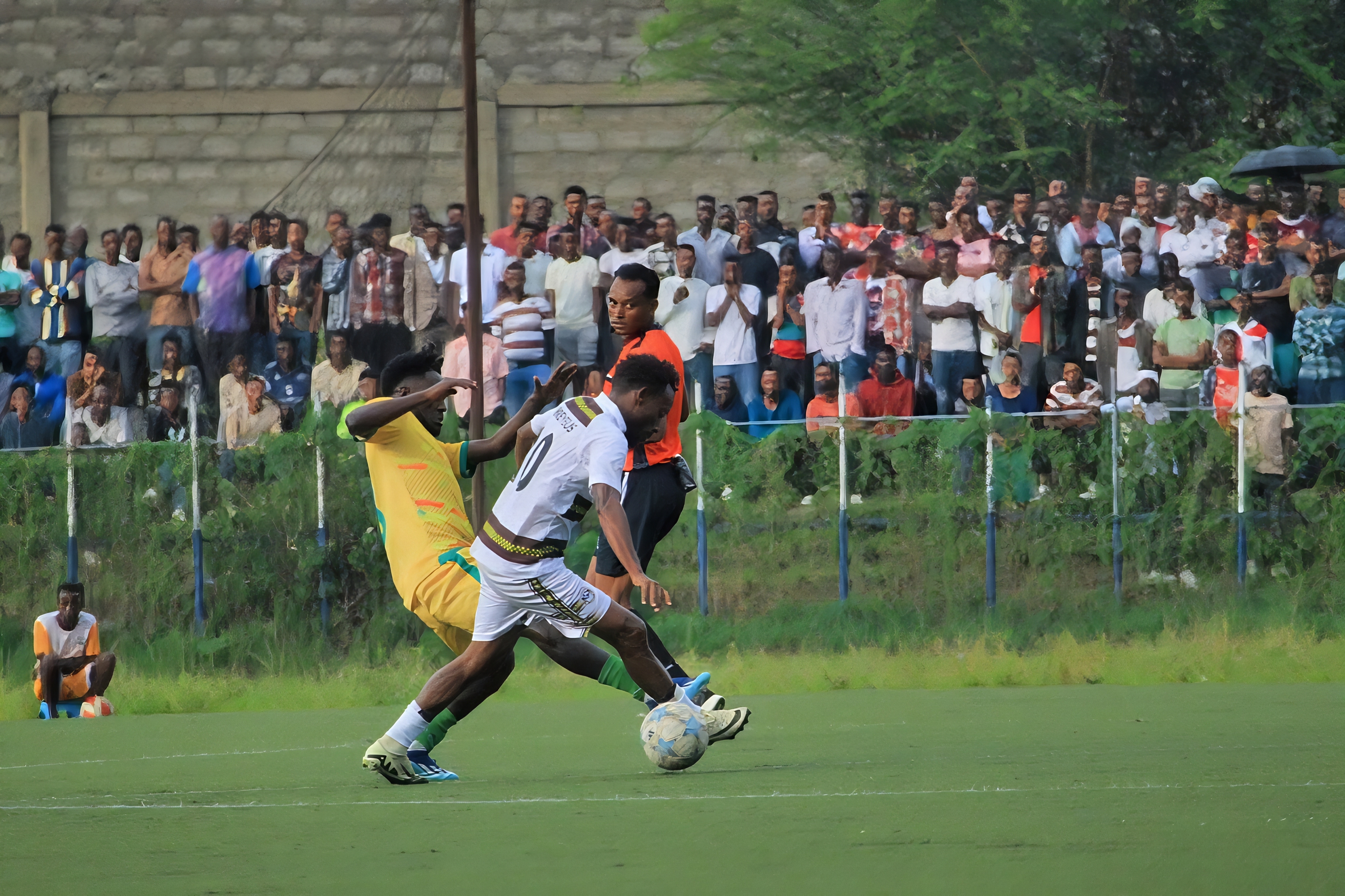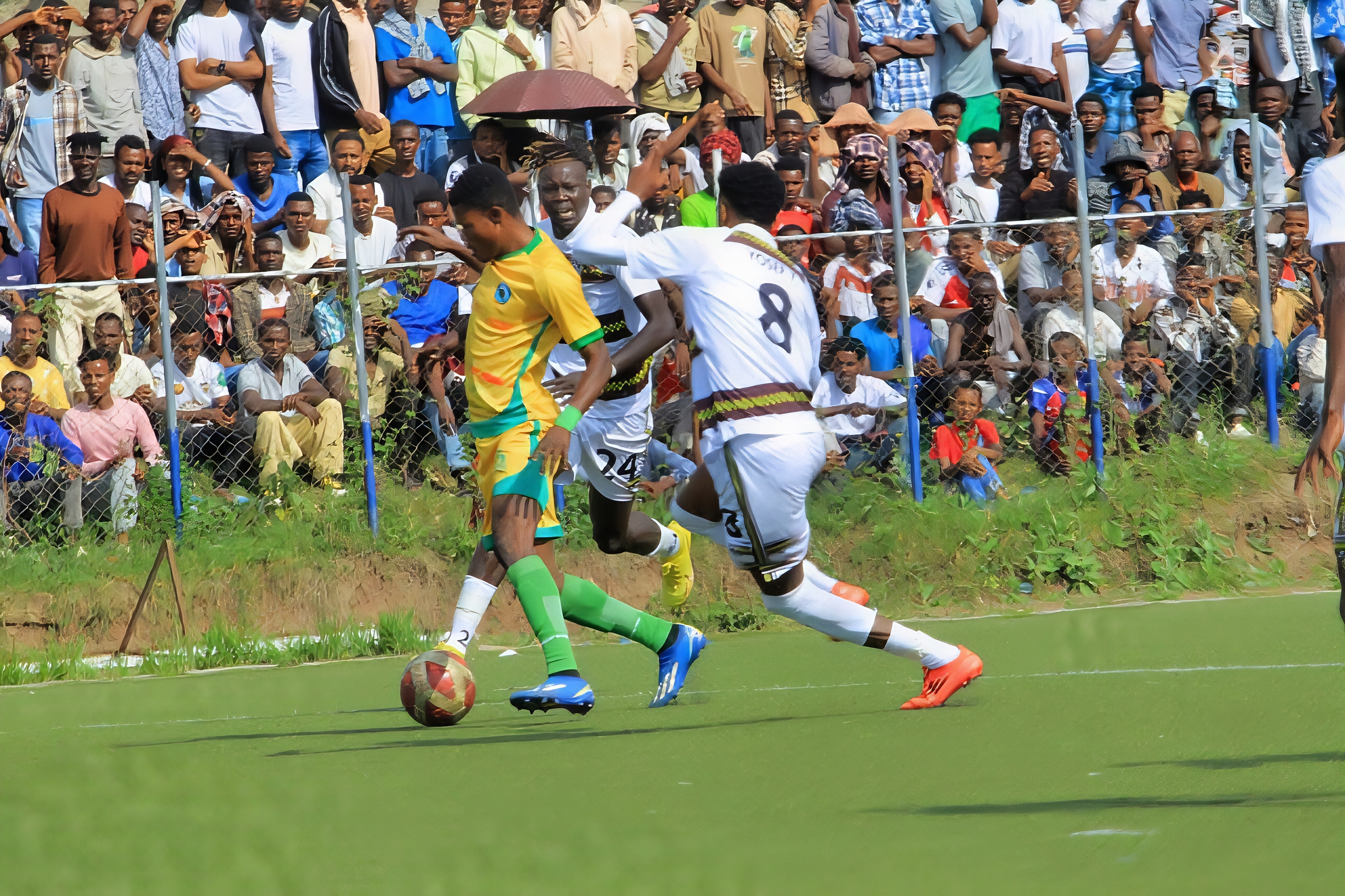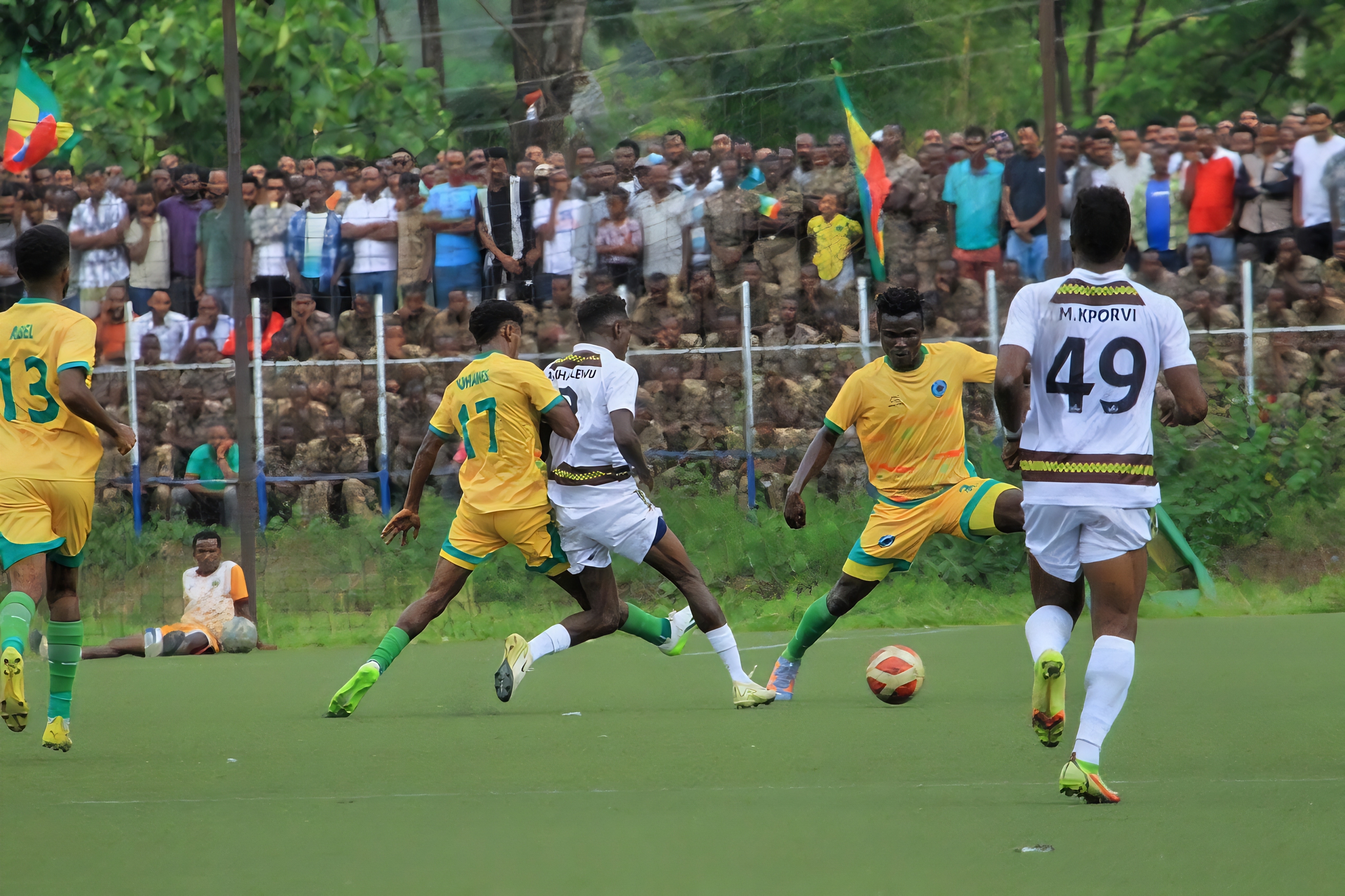Sidama Coffee vs Wolayta Dicha: A Historic Ethiopian Cup Final Showdown
In the heart of Ethiopia, where football is more than just a sport—it’s a unifying force—Sidama Coffee and Wolayta Dicha are set to clash in the Ethiopian Cup final, a match brimming with drama, pride, and dreams of continental glory. Sidama Coffee, hailing from the coffee-rich highlands of southern Ethiopia, has captured the nation’s imagination with their journey from regional contenders to national finalists. Their semi-final triumph over Mechal, sealed in a thrilling penalty shoot out thanks to goalkeeper Dereje Worku’s heroics, underscores their resilience and determination. Meanwhile, Wolayta Dicha, representing the vibrant Wolayita Zone, brings attacking flair and tactical acumen after defeating Sheger City in their semi-final encounter.
This final is more than a battle for the trophy; it’s a celebration of Ethiopia’s diversity, culture, and passion for football. From grassroots initiatives nurturing young talent to the unifying power of the sport across linguistic and ethnic divides, the Ethiopian Cup embodies the hopes and aspirations of millions. With the winner earning a coveted spot in the CAF Confederation Cup, this match marks a pivotal moment for Ethiopian football on the African stage. Whether Sidama Coffee lifts the trophy or Wolayta Dicha claims victory, one thing is certain: Ethiopian football is poised for greatness, and the world is watching.
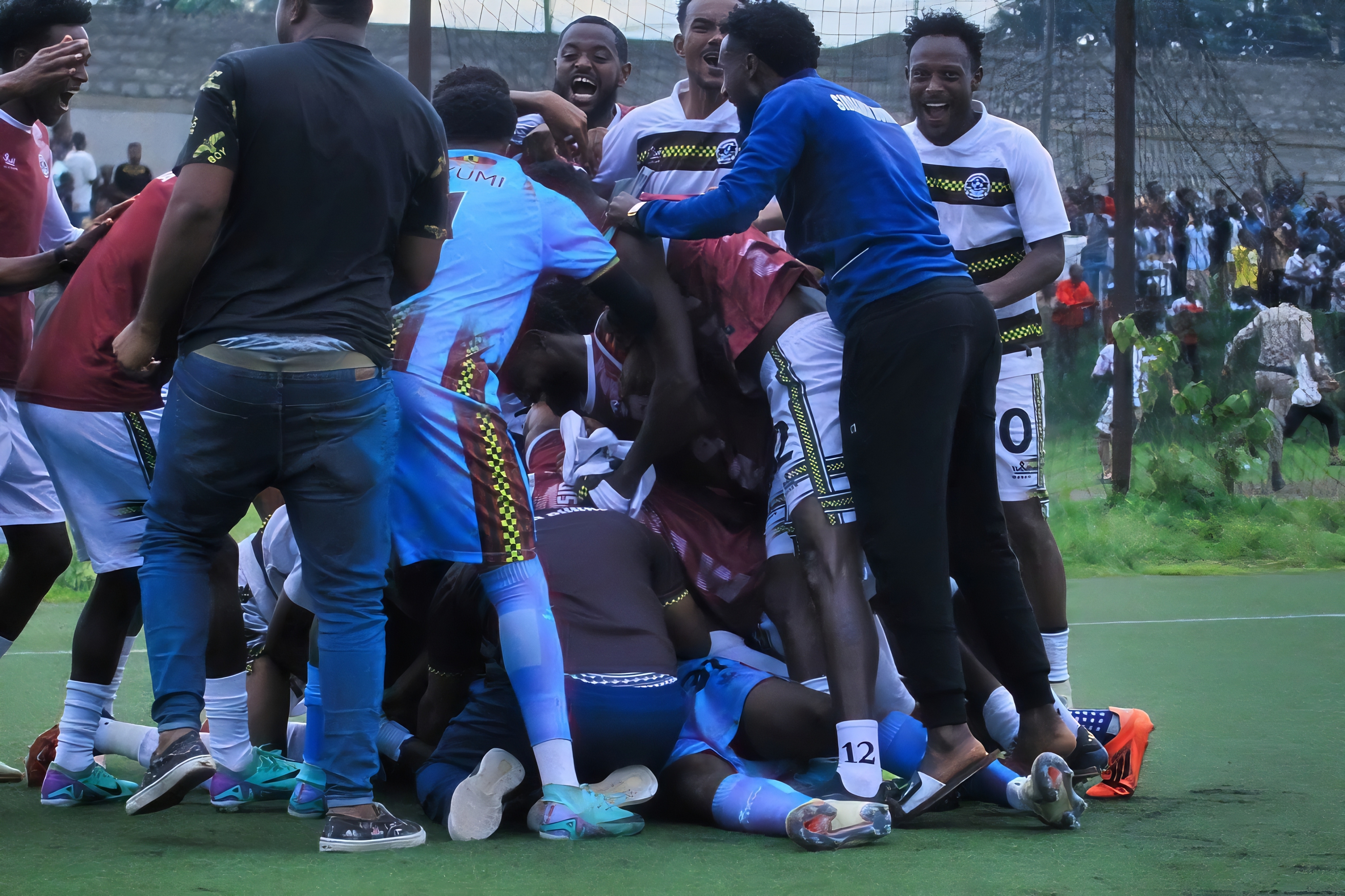
The Journey of Sidama Coffee: From Regional Pride to National Contender
In the lush highlands of southern Ethiopia, where the aroma of freshly roasted coffee beans mingles with the crisp mountain air, lies the birthplace of Sidama Coffee Football Club. Founded in 2004, the club takes its name from the Sidama Zone—a region renowned not only for producing some of the world’s finest coffee but also for its rich cultural heritage and strong sense of identity. Sidama Coffee FC was established with a dual mission: to celebrate the region’s legacy and to provide a platform for local talent to shine on the national stage. Over the years, this humble club has grown into a symbol of regional pride and an emerging powerhouse in Ethiopian football.
A Name Steeped in Tradition
The choice of “Sidama Coffee” as the club’s moniker is no accident. Coffee is more than just a commodity in Ethiopia—it is a cornerstone of social life, a source of livelihood, and a unifying force. For the people of Sidama, it represents resilience, craftsmanship, and community. By adopting this iconic name, the club sought to channel these values onto the football pitch. Players wear their jerseys with the same dedication that farmers bring to cultivating their crops, knowing they carry the hopes of an entire region with them. This connection to local culture has fostered an unparalleled bond between the team and its supporters, who see themselves reflected in every match played.
Grassroots Beginnings and Steady Growth
When Sidama Coffee first entered Ethiopia’s competitive football scene, few could have predicted the heights they would eventually reach. Initially competing in regional leagues, the club quickly distinguished itself through disciplined play and a commitment to nurturing homegrown talent. Unlike many of their rivals, Sidama Coffee invested heavily in youth academies and grassroots programmes, ensuring that players from the Sidama Zone had opportunities to develop their skills without leaving their communities. This approach paid dividends, as young athletes began to emerge as stars capable of holding their own against seasoned professionals.
By 2015, Sidama Coffee had earned promotion to the Ethiopian Premier League—the country’s top-tier division—marking a significant milestone in their journey. While adapting to the rigours of elite competition proved challenging at first, the club remained steadfast in its philosophy of fostering unity and perseverance. Fans flocked to stadiums across the nation to witness their spirited performances, often chanting traditional songs and waving flags adorned with images of coffee cherries. These displays of regional pride became a hallmark of Sidama Coffee’s matches, creating an atmosphere unlike any other in Ethiopian football.
Regional Pride Fuelling Ambition
What sets Sidama Coffee apart from other clubs is the depth of loyalty it inspires among its supporters. For fans, backing the team is not merely about cheering for victories; it is about celebrating their shared identity and asserting their place within Ethiopia’s diverse mosaic. Matches featuring Sidama Coffee are imbued with a sense of purpose, as spectators travel long distances to rally behind “their” team. The club’s success has given voice to a region historically underrepresented in national discourse, empowering residents to take pride in their contributions to Ethiopia’s cultural and sporting landscape.

This regional pride extends beyond the pitch, influencing how Sidama Coffee operates off the field. The club actively engages with local communities, organising outreach programmes that promote education, health, and environmental sustainability. One notable initiative involves partnering with coffee cooperatives to fund scholarships for young athletes, thereby linking the fortunes of the sport to the economic well-being of the region. Such efforts reinforce the idea that football can be a catalyst for positive change, strengthening ties between the club and its supporters.
Rising to National Prominence
Sidama Coffee’s rise to prominence reached new heights during the 2016–2017 season, culminating in their historic run to the Ethiopian Cup final. Their semi-final victory over Mechal—a thrilling penalty shootout triumph—cemented their status as serious contenders on the national stage. For a club once dismissed as a provincial outfit, reaching the final represents a monumental achievement. It underscores the potential of Ethiopia’s smaller regions to produce world-class teams and challenges the dominance of Addis Ababa-based giants like St. George and Ethiopian Coffee SC.
The impact of this success reverberates far beyond the confines of the stadium. Young boys and girls in Sidama now dream of emulating their heroes, while elders recount tales of past glories with renewed vigour. Sidama Coffee has become a beacon of hope, proving that with determination and teamwork, even those from modest beginnings can achieve greatness.
Looking Ahead
As Sidama Coffee prepares to face Wolayta Dicha in the Ethiopian Cup final, the club stands as a testament to the power of regional identity and collective ambition. Whether or not they lift the trophy, their journey serves as an inspiration to aspiring footballers and fans alike. In a country as diverse as Ethiopia, where unity is both a challenge and a necessity, Sidama Coffee demonstrates how sport can bridge divides and foster a shared sense of belonging.
For the people of Sidama, the club is more than just a football team—it is a living embodiment of their spirit, their culture, and their dreams. And as the sun sets over the verdant hills of the Sidama Zone, one thing is clear: the story of Sidama Coffee is far from over.
The Drama of the Semi-Final Showdown Against Mechal
The semi-final clash between Sidama Coffee and Mechal on April 19, 2017, will be remembered as one of the most electrifying encounters in recent Ethiopian football history. Played before a packed crowd at Addis Ababa Stadium, the match was a masterclass in tension, grit, and unyielding determination. What began as a tactical chess match ended in a dramatic penalty shootout, where nerves were tested to their limits and heroes emerged under immense pressure. This was not just a game—it was theatre, unfolding in real-time, with emotions running as high as the stakes.
A Tense Battle on the Pitch
From the first whistle, it was clear that both teams were evenly matched. Sidama Coffee, known for their disciplined defence and counter-attacking prowess, faced off against Mechal, a side celebrated for its tenacity and ability to grind out results. The opening exchanges saw cautious probing from both sides, with neither team willing to commit fully to attack for fear of conceding an early goal.

Sidama Coffee’s midfield trio—led by captain Elias Wondimu—worked tirelessly to disrupt Mechal’s rhythm, while their forwards sought to exploit any gaps left by the opposition’s backline. Mechal, however, proved equally resolute, marshalled by their experienced centre-back duo who snuffed out every threat with precision. Chances were few and far between, but when they did materialise, they sent waves of anticipation rippling through the stands.
One such moment came midway through the second half, when Sidama Coffee’s star striker, Tesfaye Gebremedhin, found himself clean through on goal after a clever through ball from midfielder Yohannes Abebe. With the entire stadium holding its breath, Tesfaye unleashed a powerful shot that seemed destined for the top corner. But Mechal’s goalkeeper, Alemayehu Kebede, produced a stunning save, tipping the ball over the crossbar with an outstretched hand. It was a pivotal moment, one that encapsulated the fine margins separating victory from defeat.
As the clock ticked down and extra time loomed, frustration began to creep into both sets of players. Tempers flared briefly following a contentious refereeing decision, but cooler heads prevailed, ensuring the match remained competitive yet fair. When the final whistle blew after 90 minutes, the scoreboard still read 0-0—a testament to the defensive solidity displayed by both teams.
The Penalty Shootout: Nerves of Steel
With no goals to separate them, the match moved to penalties—a cruel yet thrilling decider that demands not only technical skill but also extraordinary mental fortitude. As the players lined up for the shootout, the atmosphere inside Addis Ababa Stadium shifted palpably. Cheers turned to hushed murmurs, punctuated by gasps and roars as each attempt unfolded.
Sidama Coffee took the first penalty, entrusted to veteran midfielder Yohannes Abebe. Known for his composure under pressure, Yohannes stepped up confidently and coolly slotted the ball into the bottom-left corner, sending Alemayehu the wrong way. Mechal responded immediately, levelling the scores with a clinical finish of their own. The shootout had begun, and the tension was unbearable.
The turning point came in the fourth round of penalties, when Sidama Coffee’s goalkeeper, Dereje Worku, rose to the occasion. Facing Mechal’s designated taker, Dereje dived low to his right, stretching every fibre of his body to palm the ball away. The roar from the Sidama supporters was deafening, as their keeper single-handedly swung momentum in their favour. “Dereje is our hero today,” exclaimed one fan afterward. “Without him, we wouldn’t have made it.”
When it was Sidama Coffee’s turn to take the decisive fifth penalty, all eyes turned to winger Samuel Bekele. Just 22 years old, Samuel carried the weight of his team’s hopes on his shoulders. Taking a deep breath, he approached the spot with measured steps, placed the ball gently, and struck it firmly into the net. As the referee blew the final whistle, confirming Sidama Coffee’s 7-6 victory in the shootout, Samuel collapsed to his knees in tears of joy, surrounded by teammates who lifted him aloft in celebration.
Psychological Resilience: The Key to Success
Penalty shootouts are often described as lotteries, but those who succeed understand that preparation and mindset play crucial roles. For Sidama Coffee, the ability to stay calm amid chaos stemmed from months of rigorous training and psychological conditioning. Coach Solomon Negash revealed post-match that the team regularly practised penalty scenarios during training sessions, simulating high-pressure environments to prepare players for moments like this. “It’s not just about technique,” he explained. “You have to believe in yourself and trust your teammates. That belief carried us through tonight.”
Psychological resilience was evident not only in the penalty takers but also in the substitutes and coaching staff, who maintained focus and positivity throughout the tense proceedings. Even the fans played their part, chanting encouragement and creating an uplifting atmosphere that buoyed the players’ spirits.
Standout Performances
While the shootout rightfully grabbed headlines, several standout performances deserve recognition. Goalkeeper Dereje Worku was undoubtedly the man of the match, his penalty-saving heroics etching his name into Sidama folklore. Midfielder Yohannes Abebe also shone brightly, orchestrating play with vision and precision while converting his penalty with trademark calmness. Up front, Tesfaye Gebremedhin’s tireless running and near-goal in regular time showcased why he is considered one of Ethiopia’s brightest talents.
On the Mechal side, goalkeeper Alemayehu Kebede put forth a valiant effort, making several crucial saves during the match and keeping his team alive until the shootout. Their skipper, Getachew Mekonnen, led by example with relentless energy and commitment, even if his efforts ultimately fell short.
Beyond the Result
For Sidama Coffee, the victory over Mechal was more than just a ticket to the Ethiopian Cup final—it was validation of their hard work, unity, and unwavering belief. The drama of the semi-final showdown will forever be etched in the memories of those who witnessed it, a reminder of the raw emotion and unpredictability that make football so captivating. As the celebrations spilled onto the streets of Hawassa—the capital of the Sidama Zone—the message was clear: this club represents more than just a team; it embodies the dreams and aspirations of an entire region.
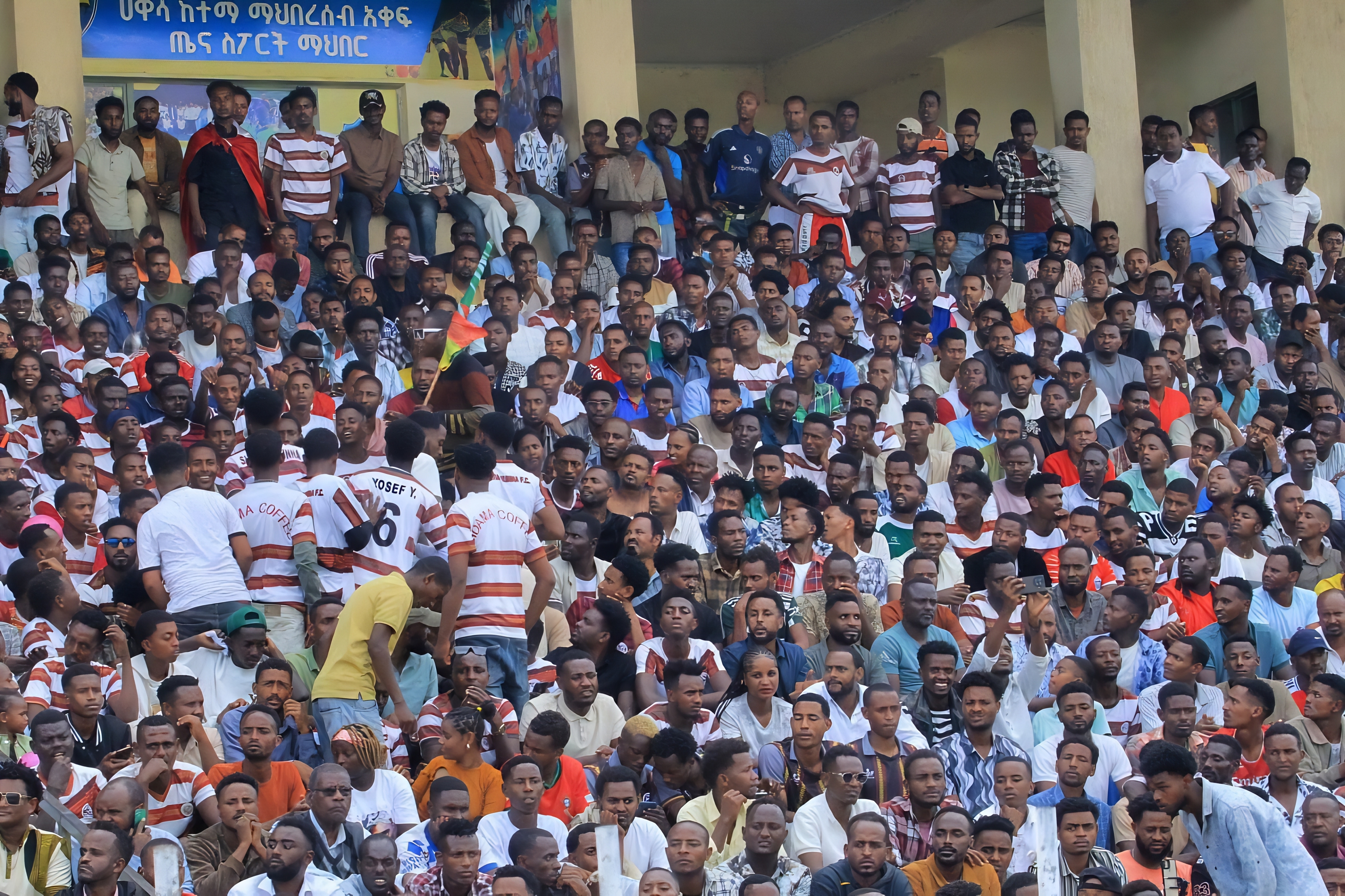
And so, as Sidama Coffee turns its attention to the final against Wolayta Dicha, the lessons learned from their epic battle with Mechal will serve as fuel for the ultimate challenge ahead. In football, as in life, resilience often separates the good from the great—and Sidama Coffee has proven they possess plenty of both.
Wolayta Dicha: A Worthy Opponent for the Grand Finale
As Sidama Coffee prepares to face Wolayta Dicha in the Ethiopian Cup final, anticipation is reaching fever pitch across Ethiopia. For fans of both clubs—and indeed for neutral observers—this clash promises to be a spectacle that encapsulates the passion, skill, and drama inherent in Ethiopian football. While Sidama Coffee enters the final riding high on their semi-final heroics against Mechal, they will find themselves up against a formidable adversary in Wolayta Dicha, a club whose journey to the grand finale has been nothing short of remarkable.
The Rise of Wolayta Dicha
Hailing from the Wolayita Zone in southern Ethiopia—a region known for its lush landscapes, vibrant culture, and strong sense of community—Wolayta Dicha embodies the spirit of resilience and ambition that defines Ethiopian football at its best. Founded in 2003, the club initially operated in relative obscurity, competing in local leagues while honing their style of play. However, over the past decade, Wolayta Dicha has steadily risen through the ranks, earning promotion to the Ethiopian Premier League and establishing itself as a force to be reckoned with.
Their path to the Ethiopian Cup final was paved with determination and tactical acumen. In the semi-final, Wolayta Dicha delivered a commanding performance against Sheger City, defeating them 2-1 in a hard-fought encounter. The match showcased their trademark attacking flair, with quick transitions and clinical finishing proving decisive. Midfield maestro Tamirat Tsegaye orchestrated the play, threading pinpoint passes that split Sheger’s defence time and again. Meanwhile, striker Fikru Tefera sealed the victory with a stunning brace, cementing his status as one of the most lethal finishers in the competition.
What sets Wolayta Dicha apart is their ability to adapt to different scenarios. Whether dominating possession or soaking up pressure before launching swift counterattacks, they exhibit a versatility that makes them unpredictable opponents. Their coach, Abebe Mekonnen, has instilled a philosophy rooted in discipline and flexibility, ensuring his players are prepared for any challenge they might face.
Strengths of Both Teams
To understand why this final will be such a compelling contest, one must examine the strengths of both Sidama Coffee and Wolayta Dicha.
Sidama Coffee:
- Defensive Solidity: Sidama Coffee’s defensive unit has been rock-solid throughout the tournament, conceding just three goals in five matches leading up to the final. Central defenders Abate Kassahun and Yared Assefa form a formidable partnership, reading the game exceptionally well and rarely making mistakes under pressure.
- Goalkeeping Heroics: Goalkeeper Dereje Worku has been instrumental in key moments, particularly during the penalty shootout against Mechal. His reflexes and decision-making make him a reliable last line of defence.
- Counterattacking Threat: With pacey wingers like Samuel Bekele and a clinical striker in Tesfaye Gebremedhin, Sidama Coffee excels in hitting opponents on the break. Their ability to transition quickly from defence to attack could catch Wolayta Dicha off guard.
Wolayta Dicha:
- Attacking Prowess: Wolayta Dicha boasts one of the most potent attacks in the competition, having scored 14 goals en route to the final. Striker Fikru Tefera’s sharp instincts in front of goal, combined with Tamirat Tsegaye’s creativity in midfield, give them an edge in offensive situations.
- Midfield Control: The engine room of Wolayta Dicha is anchored by industrious box-to-box midfielders who dominate possession and dictate the tempo of games. This control allows them to wear down opponents over the course of a match.
- Set-Piece Expertise: Wolayta Dicha has shown a knack for capitalising on set-pieces, whether through direct free-kicks or well-rehearsed routines. Defender Girma Desalegn is particularly dangerous in aerial duels, often finding space in crowded penalty areas.
Potential Strategies for the Showdown
Given the contrasting styles of these two teams, the Ethiopian Cup final is likely to hinge on which side can impose its game plan effectively. Here are some potential strategies each team might employ:
For Sidama Coffee:
- Compact Defence and Quick Transitions: Sidama Coffee may look to sit deep and absorb pressure, relying on their organised backline to frustrate Wolayta Dicha’s attackers. Once they regain possession, they can unleash their speedy forwards to exploit spaces left behind by Wolayta’s advancing full-backs.
- Exploiting Set-Pieces: Despite being more defensively minded, Sidama Coffee could focus on creating opportunities from corners and free-kicks. Their physical presence in the air, especially from central defenders, could prove decisive.
For Wolayta Dicha:
- Maintaining Possession and Stretching Defences: Wolayta Dicha will likely aim to dominate the ball, using their midfielders to recycle possession and probe for weaknesses in Sidama Coffee’s defence. By stretching the play wide, they can create crossing opportunities for their towering centre-backs and dynamic strikers.
- Pressing High Up the Pitch: To disrupt Sidama Coffee’s rhythm, Wolayta Dicha might press aggressively in the opponent’s half, forcing turnovers and launching rapid attacks. This approach could unsettle Sidama’s defenders, who prefer a slower, more methodical buildup.
Predictions and Expectations
The outcome of the final is anyone’s guess, given the quality and determination of both sides. If Sidama Coffee can maintain their defensive discipline and execute their counterattacks efficiently, they stand a strong chance of claiming the trophy. On the other hand, if Wolayta Dicha can assert their dominance in midfield and convert their chances in front of goal, they have the tools to overpower their rivals.

One thing is certain: the Ethiopian Cup final will be a celebration of football’s ability to unite people, showcase talent, and inspire dreams. For the fans of Sidama Coffee and Wolayta Dicha, this is more than just a game—it is an opportunity to see their beloved teams etch their names into history. And for Ethiopia as a whole, it is a reminder of the boundless potential within its borders, waiting to be unlocked.
As the sun sets over Addis Ababa Stadium on match day, all eyes will be fixed on the pitch where heroes will be made, legends will be born, and the story of Ethiopian football will take another unforgettable chapter.
The Broader Significance of the Ethiopian Cup
The Ethiopian Cup is far more than a football tournament—it is a cultural institution, a unifying force, and a platform for nurturing talent in one of Africa’s most diverse nations. In a country as richly varied as Ethiopia—home to over 80 ethnic groups, each with its own language, traditions, and history—the Ethiopian Cup serves as a bridge that connects people across divides. Beyond the thrill of competition, it plays a vital role in fostering national pride, inspiring young athletes, and promoting grassroots development in Ethiopian football.
A Celebration of Diversity Through Sport
Ethiopia’s diversity is both its strength and its challenge. While this plurality enriches the nation’s cultural fabric, it can also create barriers between communities. Football, however, has an unparalleled ability to transcend these differences, bringing people together through shared passion and emotion. The Ethiopian Cup exemplifies this power, offering fans from all corners of the country a chance to rally behind their teams and celebrate their unique identities on a national stage.
For clubs like Sidama Coffee and Wolayta Dicha, participation in the Ethiopian Cup is not just about sporting achievement; it is about representation. These teams carry the hopes and aspirations of their respective regions, embodying the spirit of resilience and ambition that defines rural Ethiopia. When Sidama Coffee takes to the pitch, they do so not only as footballers but as ambassadors of the Sidama Zone—a region known for its coffee heritage and vibrant culture. Similarly, Wolayta Dicha represents the proud traditions of the Wolayita people, whose contributions to Ethiopian society are often overshadowed by larger urban centres like Addis Ababa.
This sense of regional pride resonates deeply with fans, many of whom travel long distances to support their teams. Matches become celebrations of identity, with supporters donning traditional attire, singing folk songs, and waving flags adorned with symbols of their homeland. Such displays remind us that football is not merely a game—it is a vehicle for cultural expression and communal solidarity.
Nurturing Local Talent
At its core, the Ethiopian Cup provides a platform for local talent to shine. Unlike international tournaments dominated by imported players, the Ethiopian Cup showcases homegrown athletes who have honed their skills within the country’s football ecosystem. For young players dreaming of greatness, seeing their idols perform on such a prestigious stage inspires them to pursue their ambitions with renewed vigour.
Grassroots initiatives play a crucial role in this process. Across Ethiopia, community-based football programmes are helping to identify and develop promising talents, particularly in underserved areas. Clubs like Sidama Coffee and Wolayta Dicha actively contribute to these efforts by investing in youth academies and training facilities. For instance, Sidama Coffee’s partnership with local coffee cooperatives funds scholarships for young athletes, enabling them to balance education with sport. Meanwhile, Wolayta Dicha organises annual tournaments for schoolchildren, providing exposure and opportunities for budding stars.
These initiatives are essential for the long-term growth of Ethiopian football. By nurturing talent at the grassroots level, clubs ensure a steady pipeline of skilled players ready to compete at higher levels. Moreover, they instil values such as teamwork, discipline, and perseverance—qualities that extend beyond the pitch and benefit individuals and communities alike.
Fostering Unity Amidst Diversity
Perhaps the most profound impact of the Ethiopian Cup lies in its ability to foster unity amidst Ethiopia’s complex social landscape. Football has a unique capacity to transcend linguistic, ethnic, and political divides, creating moments of collective joy and shared purpose. During the Ethiopian Cup, rivalries between regions take a backseat as fans unite under the banner of sport.
Consider the semi-final clash between Sidama Coffee and Mechal—a match that drew spectators from across southern Ethiopia. Despite hailing from different zones, supporters found common ground in their love for the game, cheering not just for their own team but for the spectacle itself. This camaraderie extends beyond match days, as football fosters dialogue and understanding among communities that might otherwise remain isolated.
The Ethiopian Football Federation (EFF) recognises this potential and actively promotes inclusivity through the tournament. Initiatives such as subsidised tickets for students and outreach programmes targeting remote areas ensure that even those with limited resources can participate in the excitement. Additionally, the EFF collaborates with local governments and NGOs to use football as a tool for social cohesion, organising workshops and events that bring together diverse groups.
Inspiring Future Generations
For countless young Ethiopians, the Ethiopian Cup is a source of inspiration. Watching their heroes compete on the national stage ignites dreams of following in their footsteps. Take, for example, the story of Samuel Bekele, Sidama Coffee’s young winger, who grew up kicking a makeshift ball in the streets of Hawassa. His journey from humble beginnings to starring in the Ethiopian Cup final demonstrates that success is attainable with hard work and determination.

Such stories resonate deeply with aspiring athletes, encouraging them to believe in their potential. Schools across Ethiopia report increased interest in football following high-profile matches, with children eager to emulate their idols. Teachers and coaches note that participation in sports improves discipline, boosts confidence, and enhances academic performance—a testament to the holistic benefits of athletic engagement.
Building a Stronger Football Ecosystem
While the Ethiopian Cup celebrates existing talent, it also highlights areas where improvement is needed. Success in the tournament depends heavily on strong infrastructure, coaching expertise, and financial investment—all of which remain challenges in Ethiopian football. However, recent developments suggest progress is underway. New stadiums, improved training facilities, and partnerships with international organisations are gradually elevating standards.
Moreover, the Ethiopian Cup acts as a catalyst for broader reforms. Its visibility attracts sponsors and investors, generating revenue that can be reinvested into grassroots programmes and professional leagues. This cycle of growth ensures that the benefits of the tournament ripple outward, strengthening the entire football ecosystem.
Conclusion: More Than Just a Trophy
As the Ethiopian Cup reaches its climax, it is worth reflecting on its broader significance. This tournament is not merely about crowning a champion; it is about celebrating Ethiopia’s diversity, nurturing local talent, and fostering unity among its people. It reminds us that football is more than a sport—it is a reflection of society, a driver of change, and a beacon of hope.
Whether Sidama Coffee or Wolayta Dicha lifts the trophy, the true winners are the millions of Ethiopians who find joy, inspiration, and connection through the beautiful game. In a nation as multifaceted as Ethiopia, the Ethiopian Cup stands as a shining example of how sport can unite hearts and minds, paving the way for a brighter future.
African Confederation Cup Dreams: What Victory Means for Ethiopian Football
Winning the Ethiopian Cup is not merely a domestic triumph; it represents an opportunity to step onto the continental stage and compete in the African Confederation Cup (CAF Confederation Cup) . For Ethiopian football, participation in this prestigious tournament carries profound implications—both as a chance to showcase the nation’s talent and as a catalyst for broader development within the sport. However, success on the international level is not without its challenges. Ethiopian clubs have historically struggled against Africa’s elite teams, often hampered by limited resources, infrastructure gaps, and stiff competition. Yet, a strong showing in the CAF Confederation Cup could serve as a turning point, elevating the profile of Ethiopian football globally and inspiring a new era of growth.
A Gateway to the Continental Stage
The Ethiopian Cup winner earns the honour of representing the country in the CAF Confederation Cup , Africa’s secondary club competition after the Champions League. This tournament provides Ethiopian clubs with exposure to higher standards of play, advanced tactical approaches, and world-class opponents. Competing against teams from football powerhouses like Egypt, Morocco, and South Africa offers invaluable experience that can accelerate the development of players and coaches alike.
For Sidama Coffee or Wolayta Dicha, qualifying for the CAF Confederation Cup would be a monumental achievement. It would place them among the continent’s best, giving Ethiopian fans a reason to dream big. The prospect of facing renowned clubs such as TP Mazembe (DR Congo), RS Berkane (Morocco), or Orlando Pirates (South Africa) excites supporters and underscores the global significance of winning the Ethiopian Cup.
Challenges on the Continental Stage
Despite the excitement, Ethiopian clubs face significant hurdles when competing in African tournaments. Historically, they have struggled to match the financial muscle, technical sophistication, and depth of squads fielded by their continental rivals. Key challenges include:
- Limited Resources: Many Ethiopian clubs operate on modest budgets, relying heavily on local sponsorships and ticket sales. In contrast, top African clubs benefit from lucrative deals with multinational corporations, enabling them to attract star players and invest in state-of-the-art facilities.
- Infrastructure Gaps: Ethiopia’s football infrastructure lags behind many other nations on the continent. Training grounds, medical facilities, and even stadiums often fall short of international standards, hindering performance and recovery.
- Logistical Difficulties: Travel across Africa can be arduous, with long flights, visa complications, and unfamiliar conditions posing additional obstacles. Ethiopian teams must adapt quickly to diverse climates and playing surfaces, which can impact their form.
- Tactical Disparities: African football has evolved rapidly over the past two decades, with many clubs adopting cutting-edge strategies and employing foreign coaches. Ethiopian teams, while improving, still lag in terms of tactical innovation and adaptability.
- Player Retention: Ethiopia’s brightest talents are frequently targeted by wealthier clubs abroad, leading to a brain drain that weakens domestic sides. Without robust mechanisms to retain top players, Ethiopian clubs struggle to maintain competitive squads.
Elevating Ethiopian Football Globally
Success in the CAF Confederation Cup—even if it comes in the form of reaching the group stages or pulling off a notable upset—can have transformative effects on Ethiopian football. Here’s how:
- Increased Visibility: Performing well on the continental stage puts Ethiopian football in the spotlight, attracting attention from scouts, sponsors, and media outlets. This visibility can open doors for partnerships and investment, helping to address some of the structural issues holding the sport back.
- Inspiring Young Athletes: Seeing Ethiopian clubs hold their own against African giants inspires the next generation of players. Boys and girls across the country will see that dreams of competing internationally are achievable, motivating them to pursue careers in football.
- Boosting Domestic Leagues: Success in the CAF Confederation Cup raises the profile of the Ethiopian Premier League, drawing larger audiences and increasing revenue streams. Clubs can reinvest these earnings into youth academies, coaching education, and facility upgrades, creating a virtuous cycle of improvement.
- Strengthening National Pride: A strong showing in Africa fosters national pride and unity, reinforcing the idea that Ethiopia can compete with the best on the continent. This sense of accomplishment transcends sport, contributing to a positive national identity.
- Learning Opportunities: Exposure to different styles of play and coaching philosophies helps Ethiopian teams grow tactically and technically. Players return home with enhanced skills and knowledge, which they pass on to teammates and younger generations.
Lessons from Past Campaigns
Ethiopian clubs have had fleeting moments of success in African competitions. St. George SC, one of the country’s most storied clubs, reached the semi-finals of the African Champions League in 1967, finishing third overall. More recently, Defence Force FC qualified for the CAF Confederation Cup in 2014 but failed to progress beyond the preliminary rounds. These experiences highlight both the potential and the challenges faced by Ethiopian football.
To build on these foundations, clubs need sustained support from the Ethiopian Football Federation (EFF) and private stakeholders. Investment in modern training methods, improved scouting networks, and strategic planning is essential. Additionally, fostering relationships with successful African clubs could provide valuable insights into what it takes to compete at the highest levels.
A Vision for the Future
If Sidama Coffee or Wolayta Dicha secures victory in the Ethiopian Cup and subsequently performs admirably in the CAF Confederation Cup, it could ignite a renaissance in Ethiopian football. Imagine a future where Ethiopian clubs consistently qualify for continental tournaments, where stadiums are filled with passionate fans, and where young players aspire to represent their country on the global stage. Such a vision may seem ambitious, but it is within reach—with dedication, collaboration, and belief.
Winning the Ethiopian Cup is therefore more than just lifting a trophy; it is about seizing an opportunity to rewrite the narrative of Ethiopian football. By stepping onto the continental stage, Sidama Coffee or Wolayta Dicha can inspire a nation, challenge stereotypes, and lay the groundwork for lasting change. As Ethiopia looks to the future, the dream of African glory remains alive—and the journey begins right here, on the hallowed turf of Addis Ababa Stadium.
The Story Unfolds: Sidama Coffee’s Rise to Glory
In the heart of Ethiopia—a nation celebrated as the cradle of coffee and a land steeped in history, culture, and resilience—emerges a story that mirrors its rich heritage. Sidama Coffee Football Club, named after the fertile highlands of southern Ethiopia where some of the world’s finest coffee is cultivated, has carved out its own legacy in the realm of football. Their journey from humble beginnings to the pinnacle of Ethiopian football encapsulates not only sporting achievement but also the enduring spirit of perseverance, unity, and ambition that defines both the region and the nation.
From Humble Roots to National Prominence
Sidama Coffee was founded with a vision deeply rooted in the values of its namesake: vitality, resilience, and community. For the people of Sidama, coffee is more than just an export—it is a way of life, a symbol of hard work, and a source of communal pride. By adopting this iconic name, the club sought to channel these principles onto the football pitch, creating a team that would embody the aspirations of an entire region. Over the years, Sidama Coffee has steadily climbed the ranks of Ethiopian football, earning respect through disciplined gameplay, strategic foresight, and an unwavering commitment to nurturing local talent.
Their ascent to prominence has been marked by milestones that reflect their determination and growth. From competing in regional leagues to securing promotion to the Ethiopian Premier League, each step forward has been a testament to their grit and organisation. Behind every victory lies countless hours of training, sacrifices made by players and staff, and unyielding support from fans who see themselves reflected in the club’s journey. As Sidama Coffee prepares for the Ethiopian Cup final, they carry with them not just the hopes of a football team but the dreams of an entire community.
A Semi-Final Triumph Worth Remembering
The semi-final clash against Mechal will go down in history as one of the most thrilling encounters in Ethiopian football. Played under the bright lights of Addis Ababa Stadium, the match unfolded with intensity and drama, leaving spectators on the edge of their seats until the very last moment. Both teams displayed remarkable skill and tenacity, resulting in a tense goalless draw after 90 minutes of regulation play. With neither side willing to yield, the contest moved to penalties—a nerve-wracking decider that separates the strong from the exceptional.
It was here that Sidama Coffee truly shone. Goalkeeper Dereje Worku emerged as the hero of the hour, producing a series of breathtaking saves during the shootout. His acrobatic dive to deny Mechal’s fourth penalty attempt sent shockwaves through the crowd, galvanising his teammates and igniting chants of celebration among the supporters. Each successful conversion by Sidama Coffee’s penalty takers was met with roars of approval, culminating in a cathartic release of emotion when the final whistle confirmed their victory. Tears streamed down faces—not just of players but also of fans—as the realisation sank in: Sidama Coffee had done the impossible. They were heading to the Ethiopian Cup final.
This moment was emblematic of Ethiopian football at its core: raw, unfiltered passion. It reminded everyone present why football holds such a special place in the hearts of Ethiopians—it is not merely about winning or losing; it is about hope, resilience, and the collective joy of overcoming adversity.
Facing Wolayta Dicha: A Clash of Titans
Awaiting Sidama Coffee in the final is another powerhouse from southern Ethiopia: Wolayta Dicha. Hailing from the neighbouring Wolayita Zone, Wolayta Dicha shares many similarities with Sidama Coffee—they too are products of regional pride, drawing inspiration from their cultural heritage and representing communities often overlooked on the national stage. Yet, what sets Wolayta Dicha apart is their attacking flair and tactical sophistication, qualities that have propelled them to the brink of glory.
Wolayta Dicha’s path to the final included a commanding performance against Sheger City, showcasing their ability to dominate possession and execute clinical finishes. Striker Fikru Tefera, in particular, has been in scintillating form, scoring crucial goals and leading the line with poise and precision. Midfielder Tamirat Tsegaye adds creativity and control, threading passes that slice through opposing defences. Together, they form a formidable unit capable of dismantling even the most organised backlines.
For Sidama Coffee, the challenge lies in balancing defensive solidity with offensive intent. Their backline, marshalled by central defenders Abate Kassahun and Yared Assefa, has proven impenetrable throughout the tournament. However, breaking down Wolayta Dicha’s dynamic attack will require focus, discipline, and perhaps a touch of ingenuity. Football pundits are divided over which team holds the upper hand, but all agree that the final promises to be a spectacle worthy of Ethiopia’s proud sporting tradition.
Beyond the Pitch: Football as a Unifying Force
While the Ethiopian Cup final is undoubtedly a celebration of athletic excellence, its significance extends far beyond the confines of the stadium. In a country as diverse as Ethiopia—home to over 80 ethnic groups, each with distinct languages, traditions, and histories—football serves as a universal language that transcends barriers. Matches like this bring together people from across the nation, uniting them in shared excitement and collective pride.
Success stories like those of Sidama Coffee and Wolayta Dicha inspire young athletes in remote villages, proving that dedication and hard work can turn dreams into reality. These clubs are living proof that talent exists everywhere, waiting to be discovered and nurtured. Grassroots initiatives spearheaded by both teams—such as youth academies, community outreach programmes, and partnerships with local businesses—ensure that opportunities are accessible to aspiring players, regardless of background.
Moreover, participation in tournaments like the CAF Confederation Cup offers Ethiopian clubs a platform to showcase their abilities on a global stage. While Ethiopian teams have historically struggled against continental giants, recent progress in training methods, infrastructure development, and player retention suggests brighter prospects ahead. A strong showing in the African Confederation Cup could attract investment, foster cross-cultural exchange, and elevate Ethiopia’s profile within the international football community.
Looking Ahead: Dreams of Continental Glory
Winning the Ethiopian Cup carries immense prestige, but it also opens doors to greater challenges and opportunities. The victor will earn the right to compete in the CAF Confederation Cup, pitting them against some of Africa’s finest clubs. While the road ahead will undoubtedly be difficult, success—even in small measures—can have transformative effects on Ethiopian football.
Imagine a future where Ethiopian clubs consistently qualify for continental tournaments, where stadiums are filled with passionate fans, and where young players aspire to represent their country on the global stage. Such a vision may seem ambitious, but it is achievable with sustained effort, collaboration, and belief. If Sidama Coffee or Wolayta Dicha can rise to the occasion and deliver a memorable performance in the CAF Confederation Cup, they will not only bring pride to their regions but also ignite a renaissance in Ethiopian football.
Conclusion: A Legacy in the Making
As Sidama Coffee stands on the cusp of greatness, their journey serves as a reminder of what is possible when passion meets purpose. From the rolling hills of Sidama to the bustling streets of Addis Ababa, their story resonates with millions of Ethiopians who see in them a reflection of their own struggles and triumphs. Whether or not they lift the Ethiopian Cup, their legacy is already secure—they have inspired a nation, challenged stereotypes, and laid the groundwork for lasting change.
And so, as the sun rises over Hawassa and the anticipation builds for the final showdown, one thing is certain: the story of Sidama Coffee is far from over. It is a tale of resilience, unity, and hope—a testament to the power of sport to transform lives and unite communities. Whatever happens next, Ethiopia—and indeed the world—will be watching.
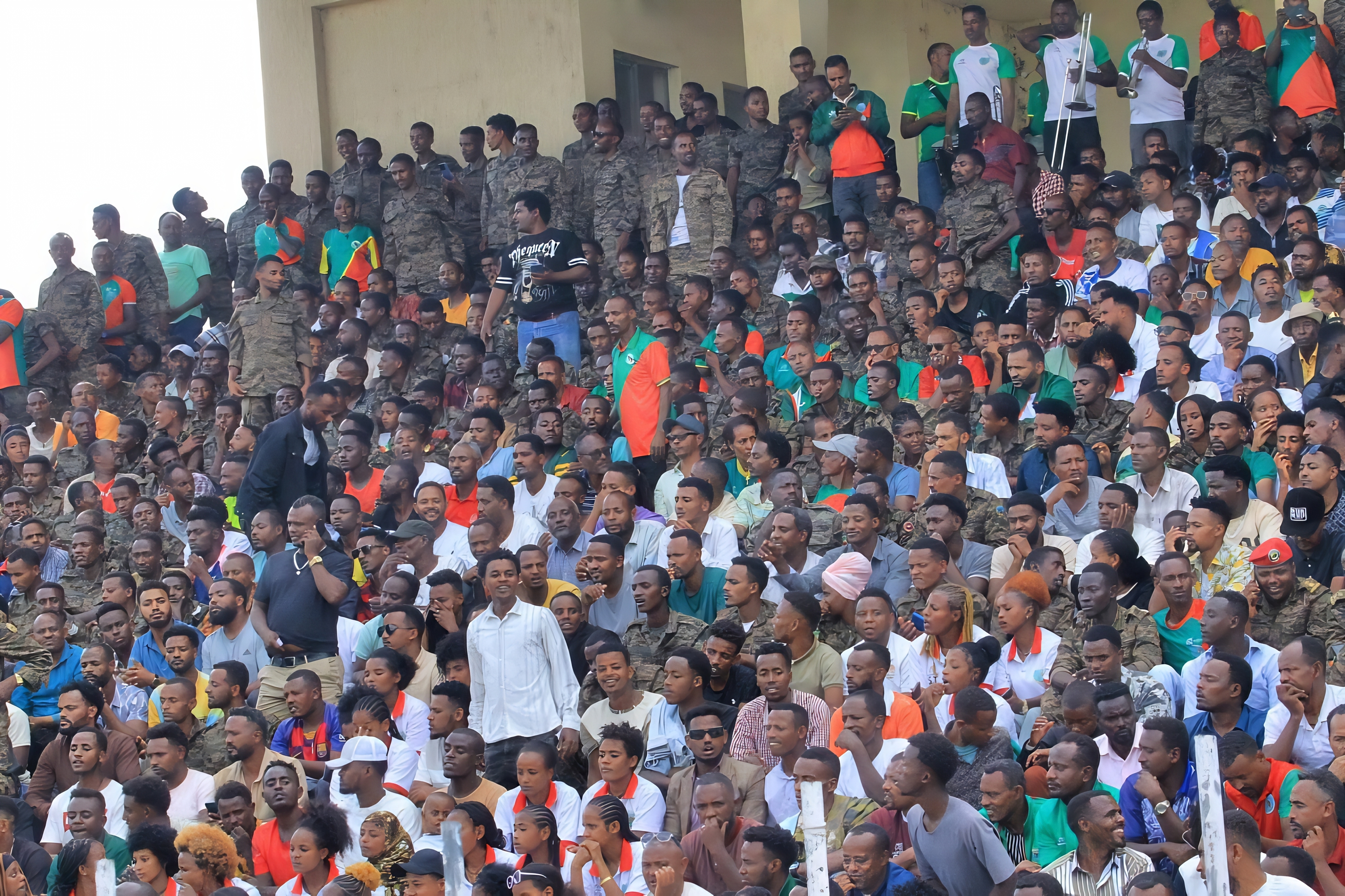
Conclusion: Beyond the Pitch
As Sidama Coffee prepares to take to the field for the Ethiopian Cup final, the weight of expectation rests not only on their shoulders but also in the hearts of millions. The eyes of Ethiopia—and perhaps even the broader African football community—are fixed firmly on this historic showdown. This is more than a match; it is a celebration of resilience, ambition, and the unifying power of sport. Football, much like coffee—the lifeblood of Ethiopia—has the ability to connect people across divides, foster collaboration, and ignite hope where it is needed most. Whether or not Sidama Coffee lifts the trophy, their journey thus far stands as a testament to the transformative potential of sport.
A Reflection of Ethiopia’s Spirit
Sidama Coffee’s rise to prominence mirrors the essence of Ethiopia itself—a nation defined by diversity, perseverance, and an unyielding determination to overcome challenges. From the fertile highlands of Sidama, where coffee beans are nurtured with care, to the bustling stadiums of Addis Ababa, where dreams are forged through grit and teamwork, the club embodies the spirit of its homeland. Their story resonates deeply with Ethiopians from all walks of life, reminding us that greatness often emerges from humble beginnings. It is a narrative that transcends football, inspiring individuals to pursue excellence while staying rooted in their identity.
The semi-final victory against Mechal was a masterclass in courage and composure, showcasing the psychological strength required to prevail under immense pressure. Goalkeeper Dereje Worku’s heroics during the penalty shoot out encapsulated the indomitable human spirit—a reminder that success is not merely about skill but also about belief and unity. For fans who travelled hundreds of kilometres to cheer on their team, for children in Hawassa dreaming of emulating their idols, and for communities rallying behind Sidama Coffee, this journey represents something far greater than a single tournament—it is a beacon of possibility.
Football as a Force for Unity
In a country as culturally diverse as Ethiopia, where linguistic, ethnic, and regional differences often define daily life, football serves as a rare unifying force. Matches like the Ethiopian Cup final bring together people from every corner of the nation, creating moments of shared joy and collective pride. When Sidama Coffee faces Wolayta Dicha, they do so not just as rivals but as representatives of southern Ethiopia’s rich heritage. Both teams carry the hopes of their respective regions, proving that football can bridge divides and foster mutual respect.
This unity extends beyond the pitch. Success stories like those of Sidama Coffee and Wolayta Dicha inspire young athletes in remote villages, encouraging them to believe that hard work and dedication can lead to extraordinary achievements. Grassroots initiatives spearheaded by these clubs ensure that opportunities are accessible to aspiring players, regardless of background. In doing so, they lay the foundation for a brighter future—not just for Ethiopian football but for society as a whole.
Building Bridges Beyond Borders
Winning the Ethiopian Cup carries implications that stretch far beyond national borders. The victor will earn the privilege of competing in the CAF Confederation Cup, offering Ethiopian football a platform to shine on the continental stage. While Ethiopian clubs have historically faced significant challenges in Africa’s premier competitions, recent progress suggests that brighter days lie ahead. Improved training facilities, innovative coaching methods, and increased investment in youth development have begun to bear fruit, raising standards across the board.
A strong showing in the CAF Confederation Cup would not only elevate the profile of Ethiopian football globally but also attract attention from sponsors, scouts, and investors. Such exposure could pave the way for sustained growth, enabling Ethiopian clubs to compete at higher levels consistently. More importantly, it would reinforce the idea that Ethiopian talent deserves recognition and respect on the world stage.
Celebrating the Human Spirit
Ultimately, the significance of Sidama Coffee’s journey lies not in the outcome of the final, but in the values it upholds. Every pass completed, every goal scored, and every cheer echoed within the stadium walls carries meaning far beyond the ninety minutes of play. These moments remind us of our shared humanity—the ability to dream, to persevere, and to celebrate together. They teach us that true success is measured not by trophies alone, but by the impact we leave on others and the legacy we create.
For Sidama Coffee, reaching the final is already a monumental achievement. They have inspired a nation, challenged stereotypes, and demonstrated what can be accomplished through unity and determination. And yet, this is not the end—it is merely the beginning of a larger story waiting to unfold. As the whistle blows for the final match, let us remember that the echoes of this contest will reverberate far beyond the confines of the stadium, touching lives and igniting dreams across Ethiopia and beyond.
Final Thought: Will Sidama Coffee Clinch the Title?
Will Sidama Coffee lift the Ethiopian Cup and secure their place in the CAF Confederation Cup? Or will Wolayta Dicha rise to the occasion and claim glory for themselves? While the answer remains uncertain, one thing is abundantly clear: Ethiopian football is poised for greatness. The passion, talent, and ambition displayed by both teams reflect the boundless potential within the nation’s sporting landscape.
As the world watches, we are reminded that football is more than a game—it is a reflection of who we are and what we aspire to become. For Ethiopia, and for Sidama Coffee, the journey is far from over. It has only just begun.
Ethiopia Autonomous Media
Ethiopia Autonomous Media



